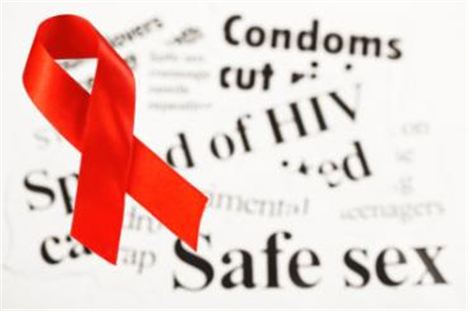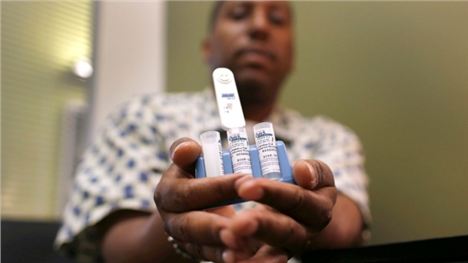IN Manchester, 6,000 people are living with HIV - the largest number in the country outside of London according to the Health Protection Agency (HPA).
But health officials have warned that numbers could be even higher as many people in the city don’t know they are infected.
Unsafe sexual practice and a lack of testing are thought to be to blame for the high numbers of cases.
Unsafe sexual practice and a lack of testing are thought to be to blame for the high numbers of cases. Which is why the HPA is advocating NHS clinicians to take every opportunity to recommend safe sex and offer regular screenings to those most at risk.
Lynda Shentall, director of services at the George House Trust (GHT), which supports people diagnosed with or living with HIV in Manchester, said: “Manchester is a large urban area and HIV is one of the health challenges that we, as residents, all face. We should all be taking steps to drive down HIV stigma and discrimination.
“Everybody needs to be tested and know their HIV status. If you are negative, have protected sex and stay that way. If you are positive get the support and treatment that you need and you will live a long life with HIV.”
Sir Nick Partridge, Chief Executive of the Terrance Higgins Trust said: “While a cure or vaccine for HIV remains stubbornly out of reach, what many people don’t realise is that medical advances mean it is now within our grasp to stop the virus in its tracks. By getting as many people with HIV as possible tested and on effective treatment, we should see new infection rates fall rapidly.”
Manchester’s Canal Street is recognised as the UK’s biggest LGBT centre outside of London. Coincidentally the HPA’s latest report adds that HIV has reached an ‘all time high’ among gay and bisexual men, with more and more cases being reported each year. One in 20 now have HIV in the UK.
Liam Smith who is 33 and HIV positive explained: “There is a sort of bareback culture where gay guys just prefer unprotected sex and actively seek it, to the point where negative guys will knowingly have sex with positive guys regardless of the consequences and some guys want to specifically have sex with positive guys, it’s bizarre but true.”
Martin Crump who is 25, from Hulme agrees. He said: “A lot of gay and bisexual men still enjoy casual sex without the use of protection, it’s all part of the thrill, they enjoy the danger of knowing how bad the consequences can be.”
Whilst men who have sex with men (MSM) continue to be at the forefront of the epidemic, heterosexual infection rates are also increasing. Roughly 60 per cent of GHT’s service users are MSM, whilst 40 per cent are predominantly heterosexual Africans.
The Black African community faces higher risk than average, with 37 out of every 1,000 living with HIV in the UK last year. Far more men and women in Black African communities are diagnosed later than MSM – 68 per cent and 61 per cent respectively, in contrast to 35 per cent.
The North West also has the highest rate of late diagnosis in the country. This means people become ill before they are diagnosed and start treatment. As a result their life expectancy is reduced and the likelihood of health complications is greatly increased.
Liam was diagnosed with HIV in 2007. He said: “I never got tested as I thought it was just a bad virus. Then I spoke to a friend who was positive and he told me when you get HIV the virus attacks your body, the illness he described was everything I was going through and so I arranged a test. I hadn’t been practicing safe sex at the time so I wasn’t surprised when it came back positive.”
Lynda Shentall says: “Late diagnosis is a big issue for the UK as a whole. Many people who get HIV will contract it from somebody who is undiagnosed and does not know that they’re living with the virus.”
Liam suspects the rise in HIV could be due to developments in medicine: “HIV was originally a life limiting illness which is now classed as a controlled infection. Due to the advancement in anti-viral drugs the condition is far more manageable and so it’s not taken seriously.
“I think people just aren’t as worried because they’re aware of the drugs and treatment available. Twenty years ago you were given six months to live when you were diagnosed, whereas now it’s the same life expectancy as diabetes.”
Sir Nick Partridge stresses this attitude needs to change: “We need people to understand HIV is just as relevant an issue today as it was in 1982. Someone somewhere in the UK is diagnosed with HIV every 90 minutes. Each and every one of us has a responsibility to keep ourselves and each other safe.
“Together we can stop HIV but it starts with you.”
Follow Eleri on Twitter @Eleri_Roberts





